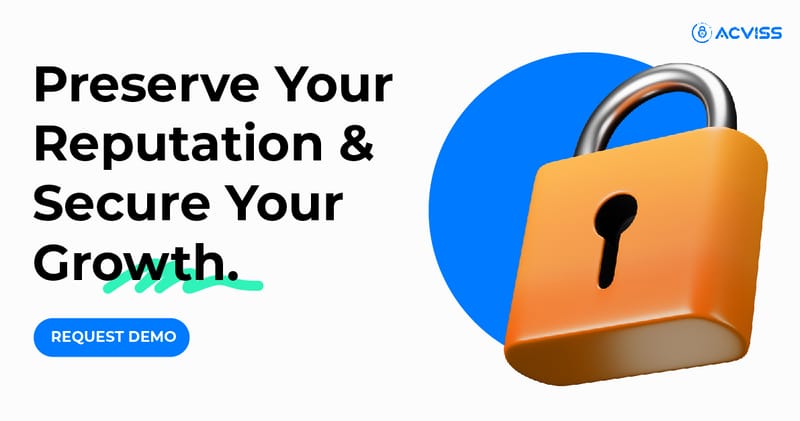What is GS1 and Why it is Important For Your Brand
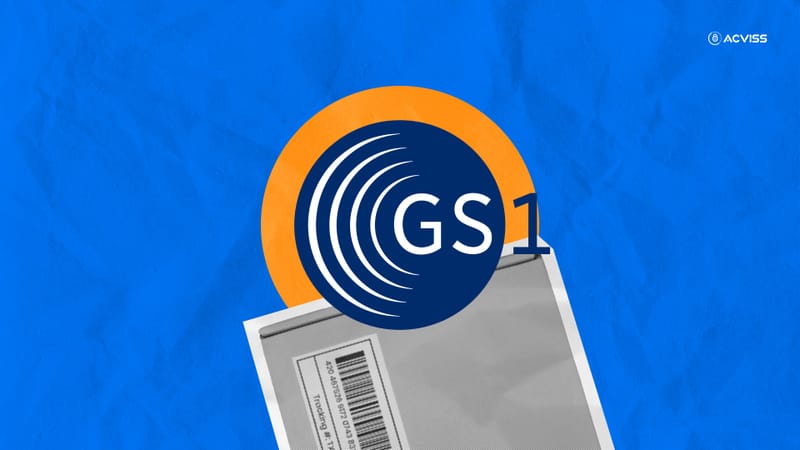
Imagine you're walking in a supermarket. There are 'n' number of products from different parts of the world and various brands. From fresh produce to high-tech gadgets, everything is carefully labelled with barcodes. You fill up your cart and head for the checkout, where the staff scans the barcode to generate the bill. Have you ever wondered how a single scan at the checkout provides all the information needed to complete your purchase?
That little black-and-white pattern is part of a global system called GS1, and it plays a crucial role in the world of commerce. GS1 is not just barcodes—it's the silent powerhouse behind seamless business operations, traceability, and consumer trust.
Whether you're a brand owner or a business operator, understanding GS1 standards is essential for navigating today's competitive markets. Here, we will talk about what GS1 is and why it's important for your brand.
What is GS1?
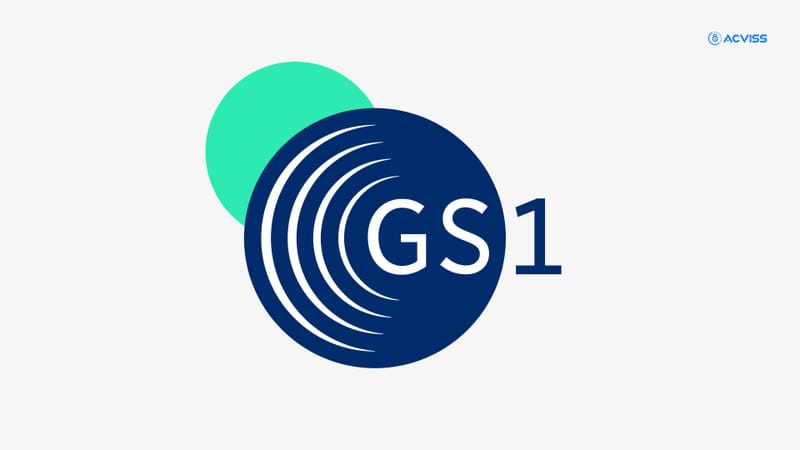
GS1 is a global, not-for-profit organisation that develops and maintains standards for business communication. The best-known of these standards is the barcode, but GS1 is much more than just barcodes. With a presence in over 100 countries, GS1 helps businesses across the globe streamline their operations, enhance supply chain transparency, and foster better consumer trust.
Imagine you are an Indian brand selling in Germany, France and Spain. Now, to understand and track the details of your product for both you and the stores where you have placed your product, you will have to print different labels in different languages. Here is where GS1 comes into the picture. A brand uses GS1 to identify, capture, and share information about products, locations, and assets without having different language on the labels for different regions. GS1 standards are basically a common language for businesses. Whether you're a retailer, manufacturer, or logistics provider, GS1's globally accepted standards provide a seamless way to manage operations and track products from production to the hands of consumers.
Benefits of GS1 for Brands
Whether you run a small e-commerce store or a large retail brand, the importance of GS1 cannot be ignored. Implementing GS1 standards ensures that your products meet global compliance standards. This is very important if you want to expand into new markets or partner with big retailers.
Let's break it down:
- Global Standardisation: GS1's standards are globally recognised, meaning your products can seamlessly integrate into supply chains around the world.
- Improved Traceability: With the growing consumer demand for transparency, GS1 helps brands trace products from their origins to the final customer. This is particularly critical in industries like food and pharmaceuticals, where safety and authenticity are paramount.
- Boosts Consumer Trust: GS1 enables you to track products and ensure their authenticity, which fosters trust between your brand and your customers. Whether it's a food item or a pharmaceutical product, traceability ensures that consumers know where their product is coming from.
GS1 Barcodes: The Backbone of Commerce
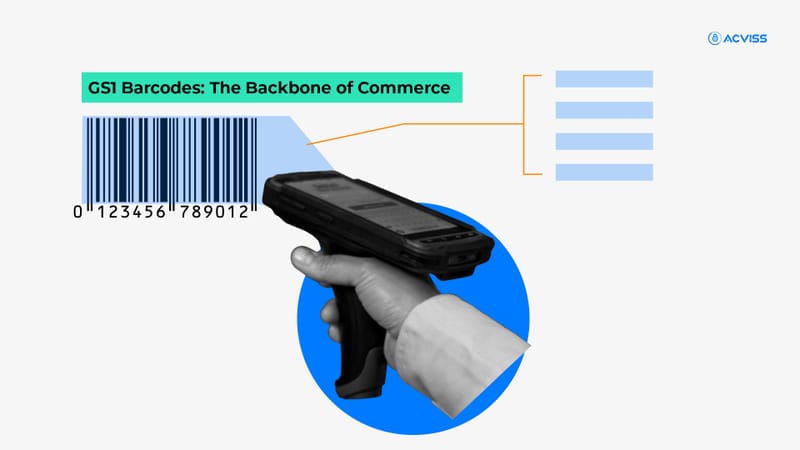
When we think of GS1, barcodes are probably the first thing that comes to mind. Those black-and-white lines may look simple, but they hold vast amounts of information.
A GS1 barcode provides a unique identification number that links to data like the product's country of origin, manufacturer, and batch number. This information is crucial for both retailers and manufacturers as it helps track products across the entire supply chain.
There are different GS1 barcodes for different purposes or according to the places you sell your products.
For example, GS1 Barcodes for Amazon. If you sell on Amazon, having GS1-compliant barcodes is mandatory. Amazon requires all products to be registered with a GS1 barcode to ensure authenticity and to reduce counterfeiting. So, if you're a business trying to expand on the Amazon marketplace, obtaining a GS1 barcode isn't just helpful—it's essential.
Why use GS1?
1. Datakart
As your business grows, managing product data can become a logistical nightmare. That's where GS1 Datakart steps in. It's an efficient platform that helps businesses store, manage, and share product data across their supply chain. This way, every stakeholder—be it a retailer or logistics provider—has access to accurate, real-time product information.
2. Enhancing the Value Chain
GS1 standards touch every part of your value chain. Using a common standard ensures transparency and efficiency at each step, from manufacturers to retailers. For example, when your products are encoded with a GS1 barcode, they can be tracked through every phase of production, transport, and sale.
3. Smart Labels
With GS1 standards, we are entering an era of smart labelling. These labels go beyond simple barcodes by incorporating QR codes and RFID tags. When scanned, smart labels can provide consumers with comprehensive information, including the product's origin, sustainability practices, and authenticity.
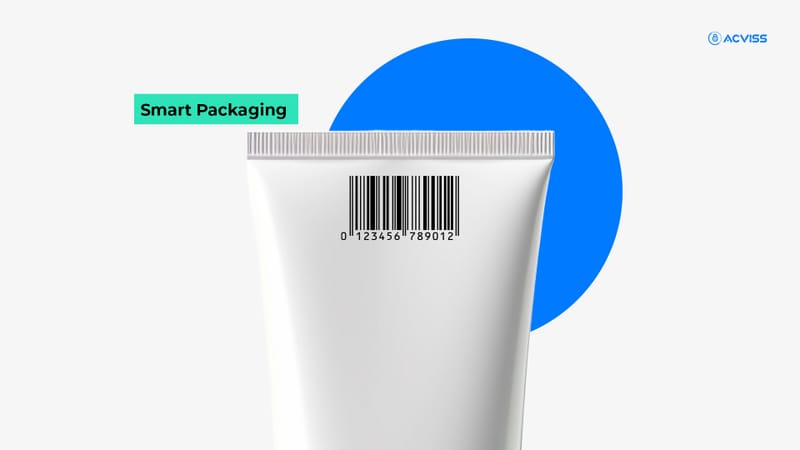
4. Smart Packaging
Smart packaging is revolutionising the way brands communicate with their customers. By embedding digital technology into packaging, such as QR codes, brands can share detailed product stories with consumers. Smart packaging also helps brands better track inventory, prevent counterfeiting, and ensure product authenticity.
5. Increasing Traceability and Trust
One of the major advantages of GS1 standards is the traceability they offer. Whether you're selling food, pharmaceuticals, or electronics, traceability is key to ensuring product safety and regulatory compliance.
For example, in industries like coffee exporting, track-and-trace mechanisms help brands comply with regulatory standards such as the European Union Deforestation Regulation (EUDR). This helps prevent costly fines and ensures that your brand stays on the right side of global regulations.
⭐Important Many brands are tempted to cut corners by purchasing cheap barcodes from unofficial vendors. But beware—these barcodes often fail to meet international standards, leading to problems with major retailers like Amazon and Walmart. Always opt for official GS1 barcodes to avoid complications and ensure your product is accepted worldwide. |
|---|
Industries Which Can Use GS1
All businesses dealing in physical products should use GS1 regardless of the industry and products.
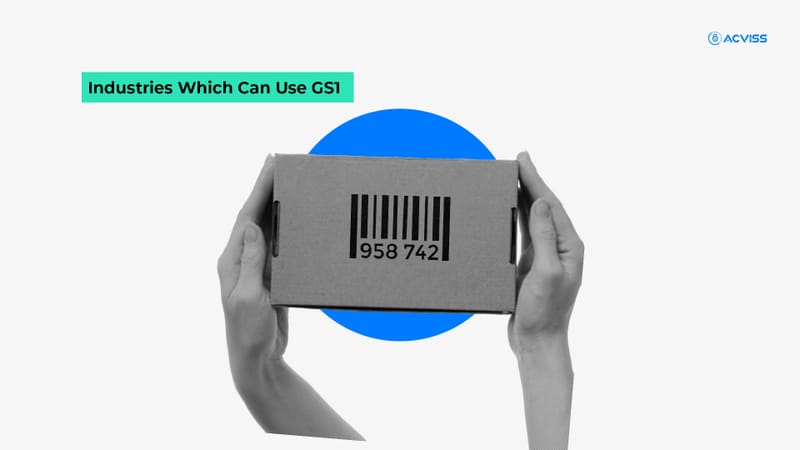
For example, GS1 can be used in the pharmaceutical industry. When it comes to pharma, GS1 plays a critical role in ensuring product safety and authenticity. With GS1 barcodes, every pharmaceutical product is traceable across the entire supply chain. This level of traceability ensures that consumers are getting genuine, safe products while preventing counterfeit goods from entering the market.
Now, let's take a closer look at GS1 barcodes and their types.
GS1 Barcodes and its Types
Barcodes are the unsung heroes of modern commerce. They simplify operations, improve traceability, and ensure that your products move smoothly through the supply chain. While most people are familiar with the traditional black-and-white stripes on retail products, not all barcodes are created equal.
As a brand owner, understanding the types of barcodes available to you and which ones are best suited to your business is important. People usually get confused between UPC codes and GS1 barcodes.
UPC Codes vs. GS1 Barcodes
UPC (Universal Product Code) codes are a type of GS1 barcode widely recognized in retail environments, especially in North America. When you scan a UPC code, it instantly provides detailed product information, ensuring the smooth operation of point-of-sale systems. However, UPC codes are just one of many types of GS1 barcodes.
While all UPC codes are technically GS1 barcodes, not all GS1 barcodes are UPC codes. GS1 barcodes come in a variety of formats, each designed for specific uses.
For example, GS1 also offers EAN-13, which is similar to UPC but more commonly used outside North America, and GS1-128, which is designed for logistics and includes additional data beyond what a UPC code can provide, such as batch numbers or expiration dates.
Depending on your product type and where you plan to sell it, you may need a different type of GS1 barcode. If you're selling in a global market, particularly in Europe, you might require an EAN code, while logistics might require a GS1-128 barcode. Understanding these variations ensures that your brand complies with both regional and industry-specific regulations, allowing your products to be accepted worldwide.
More Than Barcodes
By now, it's clear that GS1 is more than just barcodes. It's about ensuring that your brand is globally recognized, trustworthy, and compliant with international regulations. From improving traceability to enabling smart packaging, GS1 standards offer a comprehensive solution for modern businesses.
And if you're looking for a way to make GS1 implementation even easier, consider partnering with solutions likeOrigin by Acviss. Acviss helps businesses ensure product authenticity and traceability, making compliance with GS1 standards a breeze. Whether you're in the pharmaceutical industry or selling products on Amazon, integrating Acviss with GS1 can streamline your business operations and elevate your brand. Get in touch with our experts today and take your brand to the next level.
